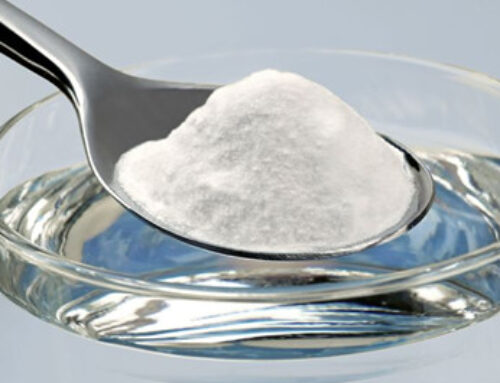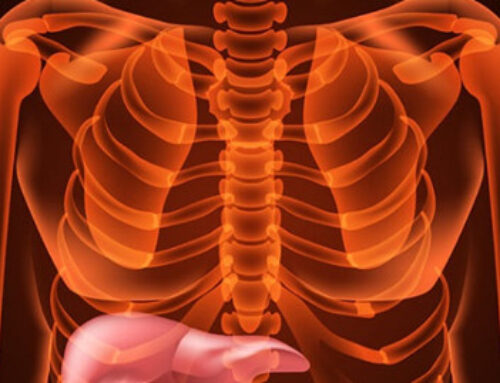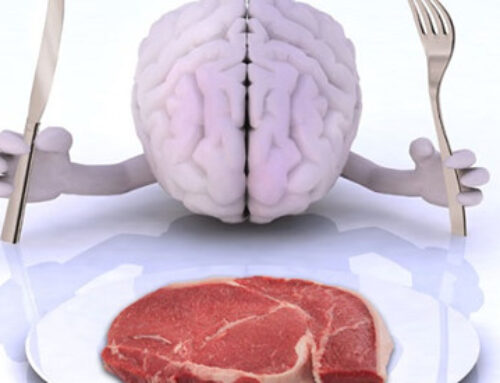I believe freedom from dealing with chronic sickness and health issues should be a birth right. However, we have more things than ever to consider if we desire a healthy life in our modern-day world. Our children now struggle with conditions the children of 20 years ago did not have to face, obesity and Type II diabetes being notable examples. Autism, like most health conditions, is on the rise as well. Thirty years ago, one in 15,000 children were diagnosed with autism. Today, the rate is closer to one in 60 (1).
Although we don’t know exactly what causes autism, I believe it stems from a perfect storm of dietary and environmental issues that manifest in neurological symptoms. The rise in autism must stem from our standard American diet, where chemicals often take the place of real, nutritious foods. Autistic children are in dire need of nutrients to help their bodies heal but our food system is largely processed, devoid of nutrition and full of toxins. Evidence has proven that an improved diet helps autistic children heal; in fact, some have seen a complete reversal of their diagnosis (2).
Dr. Natasha Campbell-McBride is a pioneer in her research regarding diet and autism. It is through her hard work that we have reliable information showing us how to heal autistic children. McBride experienced this disease firsthand when her son was diagnosed with regressive autism as a toddler. As a neurosurgeon and with a PhD in nutrition, she knew something big was missing from the autism debate. McBride examined the link between diet and gut health and how both were integral to the healing of her son’s autism. Her work is known as the GAPS (gut and psychology syndrome) program.
Gut health determines the health of our entire body, so nutrition is an essential part of the recovery process for autistic children. Our digestive tract is lined with ten trillion microbes that play many important roles in our health. The good microbes—probiotics—manufacture vitamins in our intestines. Some microbes produce antibiotics that kill off disease-causing microbes. As I have discussed in previous articles, the balance between healthy and harmful microbes must be kept in check. (See my article: A Gut Feeling: How the bacteria within directly affects your health.) This is especially important with an autism diagnoses because a compromised digestive system can cause problems in other areas, including behavioral issues common among autistic children (3).
Studies have shown that children with autism commonly have gastro-intestinal disorders. Many parents, when pressed to describe their children’s bathroom habits, will admit their child has foul-smelling gas and stool, often going between constipation and diarrhea. Many autistic children are non-verbal and unable to tell their parents that their stomach hurts. This pain can cause them to act out. Some children with autism have been observed pushing their abdomen against corners of furniture trying to find relief from the discomfort and pain of bowels that are not eliminating properly. Behaviors like this are impossible to understand unless we first examine the diet and what is going on inside the intestinal walls. We can learn to rely on non-verbal indicators of abdominal pain—is the child acting out with self-injury, irritability and aggression with no obvious reason? These are important signs a parent should look for indicating distress and pain within the body.
Many autistic children are extremely picky eaters, desiring only plain, unseasoned food that is starchy and sweet. The resolve of these kids can be strong, forcing parents who are concerned that their child is not eating to cave in and give them what they are holding out for—usually more junk. This exacerbates digestive issues because the refined grains and sugars autistic children demand are exactly what these pathogenic microbes want. Many of these microbes produce metabolic wastes that are neurotoxins (3). Lack of nutritious food causes the levels of healthy bacteria to decrease and sugary and starchy foods feed the bad bacteria, allowing them to increase in numbers. If we have an abundance of the wrong kinds of microbes in our digestive tract churning out metabolic waste, these neurotoxins can be a permanent source of brain toxicity. Just like alcohol can affect your brain, food can cause toxic buildup, which is especially destructive for people with autism.
Specific Foods that Promote Autistic Behavior
Sugar, dairy and chemicals are most problematic for autistic children. Grains are very high in sugar in the form of starch, which feeds pathogenic microbes. Table sugar causes an instant dopamine surge in the brain giving a lovely rush, taking away pain and providing comfort—exactly what the autistic child wants. On top of this, it feeds the bad microbes and it has absolutely no nutritional value. In fact, table sugar is disruptive to the entire metabolic system, leading to cavities, diabetes, heart disease, autoimmune diseases, inflammation, and so on. (See my article: Sugar is Not Your Friend.) I recommend avoiding items containing table sugar or corn syrup entirely and offer fruit as a sweet treat instead. Juices contain lots of sugar, often natural, and added. The sugar content of juice makes it very appealing to autistic children, who tend to have a terrible sweet tooth…and, again, this sugar feeds those harmful bacteria laying waste to their gut.
Dairy is another food that feeds pathogenic microbes. Dairy is high in milk sugar (lactose) and once dairy is pasteurized, it is very hard to digest. Pasteurizing involves heating the milk to high temperatures to kill bacteria, which also denatures the proteins and makes them indigestible. Many children are lactose intolerant and cannot digest milk sugar or the damaged milk proteins. This leaves the child with a bloated tummy and quite a bit of discomfort and pain. Dairy has casomorphines, which are similar to the drugs used for pain management. They are addicting. In the GAPS protocol, dairy is allowed but it is home-fermented and the dairy is always organic, preferably raw and grass-fed. In my practice, I don’t like to introduce dairy until I feel the gut is healing.
Healthy fats are so important in the diet of autistic children. Cheap vegetable oils are linked to many of our modern diseases and there is no place for them in the diet of an autistic child. These oils are devastating at a cellular level and cause enormous inflammation. Replace them in your child’s diet with good quality olive oil, ghee or butter from grass-fed cows. Coconut oil is very easy to digest and prevents yeasts like candida from building up in the gut. Try putting a tablespoon of coconut oil in your child’s fruit smoothie. It adds a nice flavor and lovely creaminess. I cook with coconut oil and I like to use organic sesame and avocado oils for salad dressings. These fats are essential for good brain function, which is a priority for autistic children.
Watch out for chemicals in your child’s diet. Non-organic meats and produce are a big source of chemical residue, hormones and antibiotics. When we consume animals that are raised with antibiotics, these drugs end up in our intestines, leading to the destruction of our healthy microbes and the creation of super bugs that we cannot kill with antibiotics. The chemicals sprayed on conventional produce are very destructive to the body. Autistic children are already at a disadvantage because their livers struggle to clear poisons out of their system, so organic produce is a must. I recommend focusing on the produce on the Dirty Dozen and the Clean Fifteen food lists if you cannot buy everything organic. Autistic children are more susceptible to the toxins in our food, environment and water than the average person, and they seem to struggle with the process of detoxing naturally. It is not unusual to see an autistic child with a congested liver, which is our body’s main organ of detoxification. These children are struggling to stay in balance and what is happening in the gut is directly related to what they are ingesting and the environmental toxins they are regularly exposed to; this is what affects brain function and causes the social symptoms we associate with autism.
Healing Foods for the Autistic Child
Bone broth from organic, grass-fed beef is one of the best foods you can feed an autistic child. High in proline, glycine, glutamine, hyaluronic acid and many other amino acids, this medicinal food truly heals the gut. (See my recipe: Bone Broth.) The amino acid glutamine is another nutrient required to heal the gut. It can be taken as a powdered supplement in a small glass of water and has no taste. Bone broth is best used as a soup base for vegetable beef soup, but children not used to these foods may balk at first. This is where tenacity and patience win out. It can be a battle, but soon your child will understand that they feel better after eating these types of super nutritious foods.
Fermented foods also promote gut healing. You can use fermented veggies that you make yourself, starting with a tiny amount, as the taste can be tough for children. The juice (start with ½ teaspoon) from fermented cabbage can be added into a drink or even your bone broth (as long as it’s not too hot—you don’t want to kill the microbes!). When you are trying to change a diet, you have to get creative, especially with autistic children. You can easily sneak a splash of fermented vegetable juice into a smoothie with frozen fruit, coconut milk and a bit of stevia to sweeten. Making your own fermented foods is easy and very inexpensive. There are many books on fermentation and online videos you can learn from. (See my recipe: Purple Cabbage Sauerkraut.)
A Diet Change is Worth the Effort
I cannot over-emphasize the importance of a healthy diet in the healing process of a child with autism. The diet is the cornerstone of healing. Autistic children especially need a healthy digestive system, the ability to detox in a healthy manner, and nutrients to repair their brains. Real, nutrient-dense foods promote healing of both the digestive tract and the brain. Autistic children are notoriously determined to eat what they want, so parents must be resolute in their quest to offer healing foods. Just taking sugar, grains and processed dairy out of the diet of autistic children is a great place to start. Some children with autism have been known to recover just from removing these foods (3).
The resolve of autistic children can be strong, so I highly recommend changing an autistic child’s diet with help from a professional. A GAPS practitioner is a good place to start, especially if they have a strong background in functional nutrition.
Many children diagnosed with autism see benefits from a changed diet, ranging from a partial recovery to a full recovery. Parents are thrilled when their child is finally able to express themselves after being nonverbal their whole life. If you have the time, read Dr. Campbell-McBride’s book (3). She will assure you from experience that it is possible to heal the autistic child with a nutritive diet. While we do not yet know the true cause of autism, we do know it is almost surely curable—and perhaps also preventable—with a healthy diet.
Cited References:
- Blumberg SJ, Ph.D, et al, National Health Statistics Report: Changes in Prevalence of Parent-reported Autism Spectrum Disorder in School-aged U.S. Children: 2007 to 2001-2012, U.S. Dept. of Health and Human Services, Centers for Disease Control and Prevention, National Center for Health Statistics, Report No. 65, March 20, 2013. Accessed May 2016. Available here.
- Mercola Joseph, Dr., GAPS Nutritional Program: How a Physician Cured Her Son’s Autism, Mercola.com, July 31, 2011. Accessed May 2016. Available here.
- Campbell-McBride, Natasha, MD, Gut and Psychology Syndrome: Natural Treatment for Autism, Dyspraxia, ADD/ADHD, Dyslexia, Depression, Schizophrenia, Medinform Publishing, 2010.










